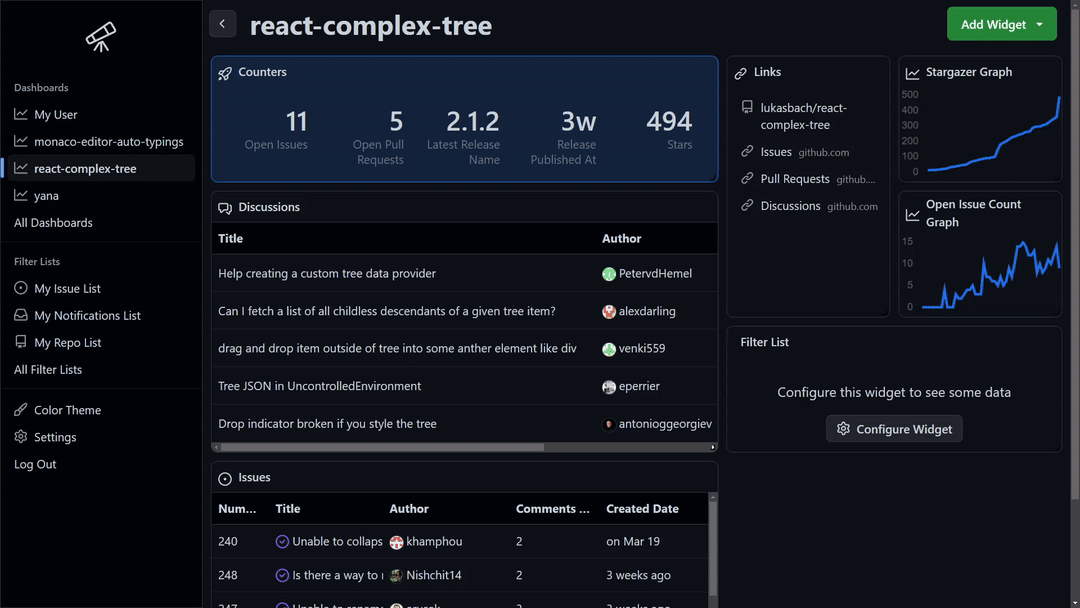A dashboarding- and item management tool for Github.
Use for free on reportal.lukasbach.com.
Reportal allows you to create custom dashboards and list views with your data from GitHub. You can create dashboards for specific repositories, which list relevant issues, discussions, pull requests and release information, or create a dashboard for your user or organization, which shows information related to all your repositories.
You can create custom lists of GitHub items, and use lots of filtering- and searching options to customize the lists to your needs. Those lists can be helpful in reporting scenarios, but also just for keeping an overview of which issues are important to you, or which pull requests you should review.
In the dashboard view, you can combine multiple lists alongside additional widgets that aggregate repository information. You can create multiple dashboards, for example one per repository, or one for each of your teams.
The list view features of Reportal are similar to the Projects feature of GitHub, but they do provide different features. Reportal does not aim to replace Projects, but provide a solution to seperate use cases that what Projects aims for. Reportal Lists allow you to define reusable search strings that provide an overview of all items that match the search, whereas Projects are rather based on custom setup of items. Also, Projects focuses on Issues and Pull Requests, whereas Reportal allows you to create lists of all sorts of items, such as Discussions, Repositories, or Repository Events.
You can create lists of
- Issues and Pull Requests
- Discussions
- Repositories
- Repository Events
- User Notifications
You can add the following items to your dashboards:
- List Views (see above)
- Value Board: shows a set of custom values, such as...
- Total count of items in list
- Repository created date
- Repository last updated date
- Repository last release creation date
- Repository last release publish date
- Repository Fork Count
- Repository Open Issue Count
- Repository Closed Issue Count
- Repository Open PR Count
- Repository Merged PR Count
- Repository Closed PR Count
- Repository Releases Count
- Repository Stargazer CXount
- Repository Latest Release Name
- Download Count of NPM Package
- List of custom Links
- Stargazer Count Graph
- Open Issue Count Graph
- NPM Package Download Graph
yarnto install dependenciesyarn startto run in dev modeyarn testto run testsyarn lintto test and fix linter errors
To publish a new version, the publish pipeline can be manually
invoked, or run yarn publish.
You can use scaffold-cli to generate new files from templates.
# Install with
npm i -g @lukasbach/scaffold
# To create a new file from a template:
scaf template-name
# List available templates:
scaf list